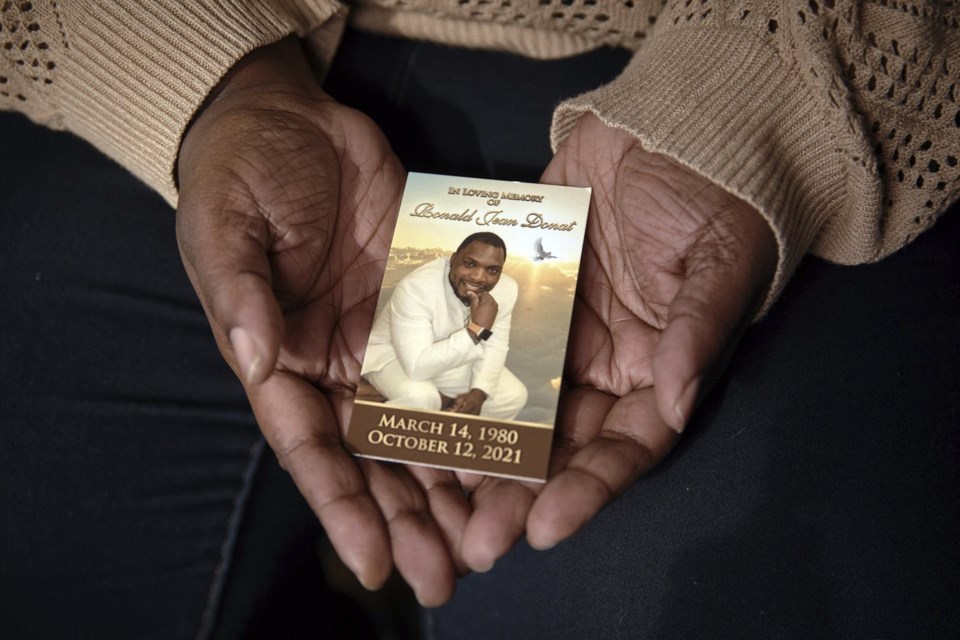When a sheriff’s deputy died at a police academy in Evansville, Indiana, two years ago, law enforcement leaders said he had collapsed during routine training.
The Associated Press set out to learn whether such deaths were routine and why were they happening. Drawing on public records and news reports, AP's investigation found that at least 29 recruits have died nationwide over the past decade while participating in basic training to become law enforcement officers.
The findings surprised some experts because no group or government agency comprehensively tracks recruit deaths. Here are some takeaways from AP’s investigation.
Most of the deaths involved exertion and heat, rather than force
The investigation found that most of those who died had collapsed after intense physical exertion during training exercises and tests.
Those included lengthy obstacle courses, grueling sets of calisthenics and timed runs that recruits must pass or face potential expulsion. Sometimes, these activities were completed on extremely hot days or without access to water.
Many of the deaths happened on the first day of physical training, which is famously intense at some academies. Others happened much later during the monthslong programs.
A handful of the deaths involved boxing or simulated training fights that inflicted trauma, as was the case of Deputy Asson Hacker in Evansville.
Heat stroke, dehydration, excessive physical exertion and related conditions were often cited by medical examiners as causing or contributing to the deaths.
Most of the recruits who died were Black men
Black men made up nearly 60% of recruits who died, even though Black officers comprise about 12 percent of local police forces nationwide.
Some experts say a genetic condition helps explain this disparity. Sickle cell trait is most prevalent among Black Americans. It involves an abnormal gene in red blood cells.
Sickle cell trait usually does not affect their daily lives or their lifespan. But in rare cases, carriers are more likely to experience complications such as heat stroke and muscle breakdown when doing intense physical and athletic training, especially during conditions such as high temperatures.
Medical examiners cited the condition as contributing to the deaths of several recruits, such as 33-year-old Edgar Ordonez, who died of exertional heat stroke while training last summer for the New York City Police Department.
Unlike the military and the NCAA, many police departments do not screen recruits for the condition before hiring them. And many adults do not know whether they carry the trait.
The Centers for Disease Control recommends remaining hydrated, building in rest breaks and taking other steps to cool body temperatures for carriers who are in training.
Deaths seem to be on the rise, at a time of officer shortages
The deaths appear to be on the rise in recent years, as police departments have turned to an older and more diverse pool of applicants to fill openings.
The majority of the deaths happened since 2020, when the pandemic and protests against police brutality exacerbated the number of vacancies. Many of those who died were in their 30s and 40s.
Alarmed by a string of such deaths, one researcher warned in a medical journal in 2023 that they were preventable with the right precautions and that police chiefs should take action.
But they have continued to mount since then. At least 5 recruits died in 2024, from Tennessee to Massachusetts.
Deaths don't always trigger recognition, benefits or investigations
Because many deceased recruits were not yet sworn officers, their names are ineligible to be added to the National Law Enforcement Officers Memorial in Washington.
Sometimes their names do not qualify for similar state memorials, and their families cannot access state death benefits for officers killed in the line of duty.
Similarly, national organizations track closely the circumstances of deaths of sworn officers. But no group is dedicated to police recruits, and that means any trends in their deaths can go unnoticed.
Workplace safety regulators have the jurisdiction to investigate police academy deaths in some states, but lack it in many others.
The extent of any death investigations is often left to the discretion of the individual police departments who run the academies and the prosecutors and medical examiners who work closely with them.
Ryan J. Foley, The Associated Press



